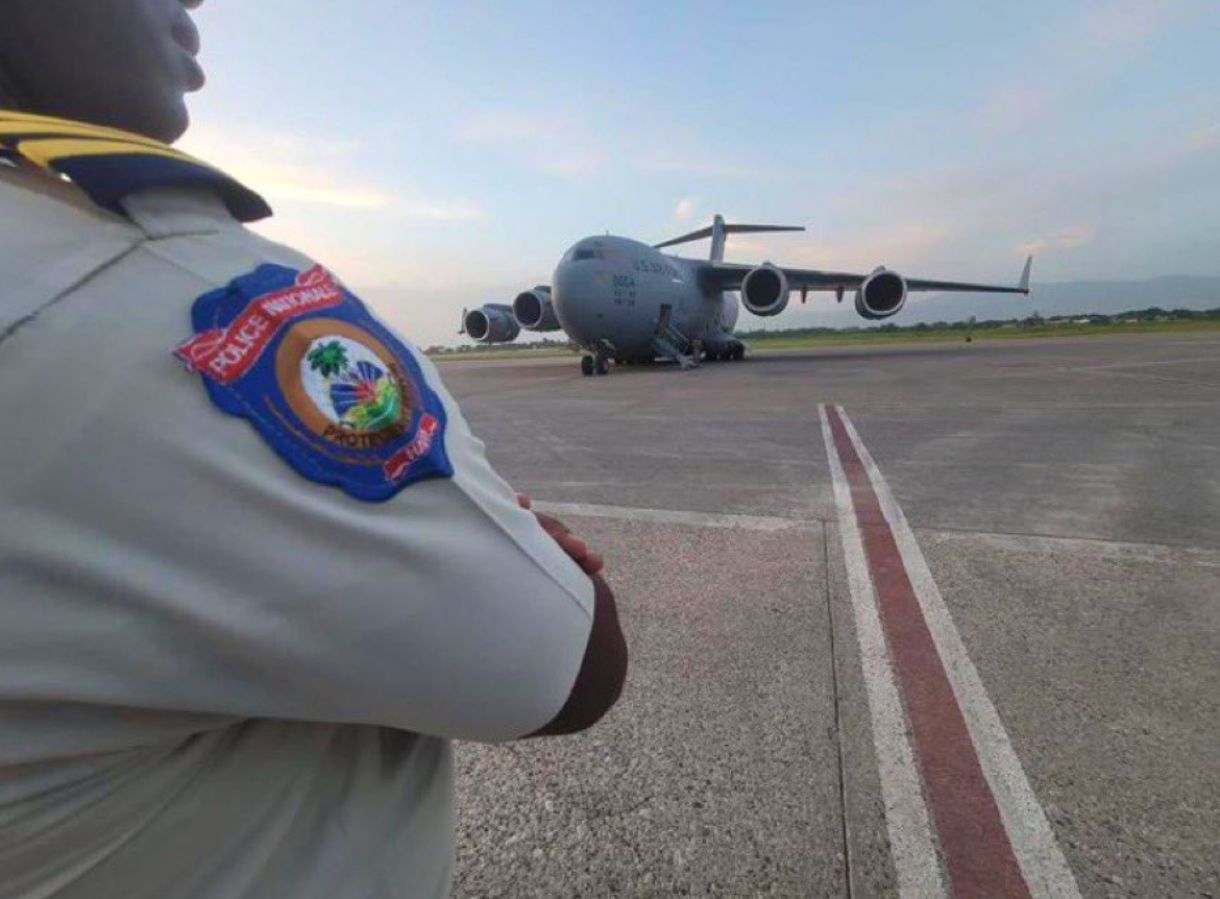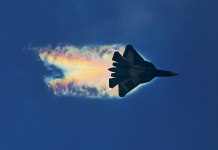Haiti, the most impoverished country in the Americas, has erupted in political unrest, with reports in western media suggesting that a criminal coalition is obstructing the distribution of gasoline and diesel.
The crisis prompted American and Canadian warplanes to land in the country amid street violence and unending protests.
In a joint statement released on the US Department of State website, the US and Canadian governments announced that military aircraft from both countries had arrived in Port-au-Prince, the capital of Haiti, to deliver military equipment for Haiti’s national police. The two have supplied “security equipment” to Haiti, including tactical and armored vehicles, to assist the country in addressing a political, economic, and security crisis.
“This equipment will assist the HNP [Haitian National Police] in their fight against criminal actors who are fomenting violence and disrupting the flow of critically-needed humanitarian assistance, hindering efforts to halt the spread of cholera,” read the statement released on Saturday by the two countries.
The crisis unfolding in the US backyard comes when Washington has increased the military aid to Ukraine and is now heavily invested in a war in the Eastern European region. The crisis in Haiti, if it implodes, would warrant massive assistance from the Pentagon.
Security assistance from the two powerful western countries has arrived in Haiti against the backdrop of halted transport and looting, and gang shootouts becoming increasingly common.
While the two western partners took pride in their military assistance to the security forces of Haiti, the locals were resentful of unwarranted foreign intervention in their domestic affairs.
A Twitter user named ‘Friendly Neighborhood Comrade’ wrote: “As the US is preparing to militarily intervene in Haiti yet again, remember that for more than a century, Haitians have been robbed of their right to sovereignty by the US.”
As the US is preparing to militarily intervene in Haiti yet again remember that for more than a century Haitians have been robbed of their right to sovereignty by the US. Here is a thread which documents this either via coups, invasions and occupations. pic.twitter.com/qCrEgR42Fw
— Friendly Neighborhood Comrade (@SpiritofLenin) October 16, 2022
Another Twitter user, @PawelWargen, reported on the warplanes landing in Haiti with severe skepticism. He wrote, “Canadian warplanes are landing in Haiti ahead of what could be an imminent foreign invasion, following weeks of protests against the US-backed puppet government and IMF austerity. This is the long punishment of Haiti’s revolution against French colonialism. It is unconscionable.”
The United States has long been accused of various Latin American and Caribbean states for meddling in their domestic politics to extract political gains and influence in the region.
A European Member of Parliament, Clare Daly, said on Twitter with a video of herself attached to the tweet: “#Haiti was a beacon of light to the world, a challenge to the dread logic of capital & empire. For this, it was punished with foreign interference: coups, invasions, occupations, and assassinations. To help Haitians stop meddling & stand up to the world’s bully, the #UnitedStates.
#Haiti was a beacon of light to the world, a challenge to the dread logic of capital & empire.
For this it was punished with foreign interference: coups, invasions, occupations, assassinations.
To help Haitians, stop meddling & stand up to the world's bully, the #UnitedStates. pic.twitter.com/mWfEIJ5xPw
— Clare Daly (@ClareDalyMEP) October 14, 2022
It is also pertinent to note that Haiti Prime Minister Ariel Henry pleaded with the world community last week to offer military aid to stop the violence and deal with the gangs.
Antonio Guterres, the head of the UN, joined him in pleading for the swift dispatch of a special armed force.
However, the pleas provoked an additional uproar, with thousands of locals protesting the “foreign occupation” in the streets. Several people were shot, and one person is said to have died.

Trouble In Haiti
Since a devastating 7.2 magnitude earthquake struck the nation on August 14, 2021, Haiti has been experiencing a severe food and security crisis.
There are reportedly 4.5 million people in the country that are severely food insecure. Haiti’s inflation rate has reached 26%, and the crisis between Russia and Ukraine is causing food prices to rise quickly, exacerbating the already debilitating food inflation.
Along with these economic problems, the nation has experienced violent battles between armed factions since June 2021, something that has crippled the capital of the country.
According to the Pan American Health Organization, cholera is rising in Haiti, with an increase in confirmed and suspected cases, roughly a quarter of which are among infants and young children.
Experts caution that the actual extent may be far worse than anticipated due to the concentration of patients in places where violence is increasing and making access difficult.
Canadian warplanes are landing in Haiti ahead of what could be an imminent foreign invasion, following weeks of protests against the US-backed puppet government and IMF austerity. This is the long punishment of Haiti’s revolution against French colonialism. It is unconscionable. pic.twitter.com/I9pWxU8w6p
— Paweł Wargan (@pawelwargan) October 15, 2022
More than 560 suspected cholera cases, 300 hospitalizations, and at least 35 fatalities have been documented. Experts warn that the actual number of cases is likely far higher.
Following the announcement by Prime Minister Ariel Henry’s administration that it could no longer afford to subsidize fuel, gangs besieged a significant fuel terminal in mid-September protests, calling for Henry to resign.
This action, together with the street blockades by countless demonstrators in Port-au-Prince and other major cities, has led to critical shortages that have forced hospitals to reduce services, gas stations to close, and banks and grocery stores to limit hours.
According to a UN assessment (PDF) released on Friday, nearly 60% of Port-au-Prince, or 1.5 million people, may currently be under the influence of gangs, many of which have used sexual assault to gain control.
It is also essential to comprehend why the nation continues to be so politically unstable despite receiving over $5 billion in aid only in the past ten years. While the US has long refused to acknowledge the nation’s independence from France, it has occasionally even attempted to annex its territory to intimidate other countries.
- Contact the author at sakshi.tiwari9555@gmail.com
- Follow EurAsian Times on Google News




